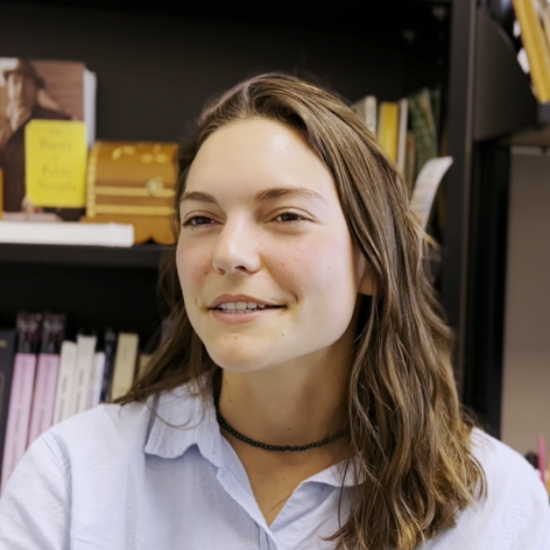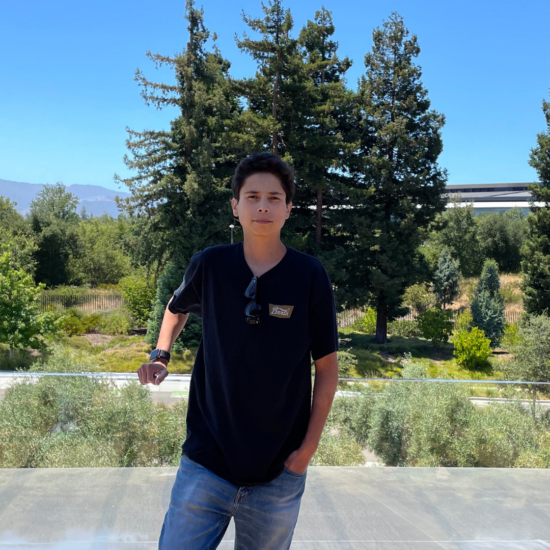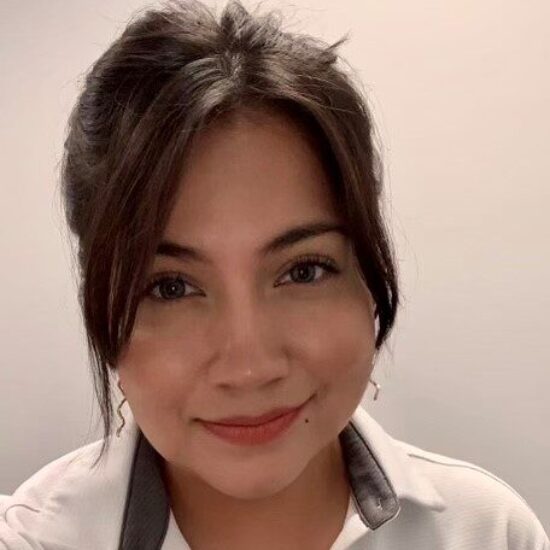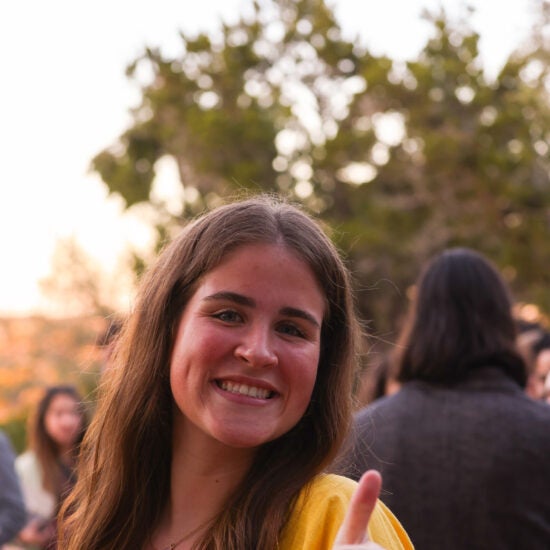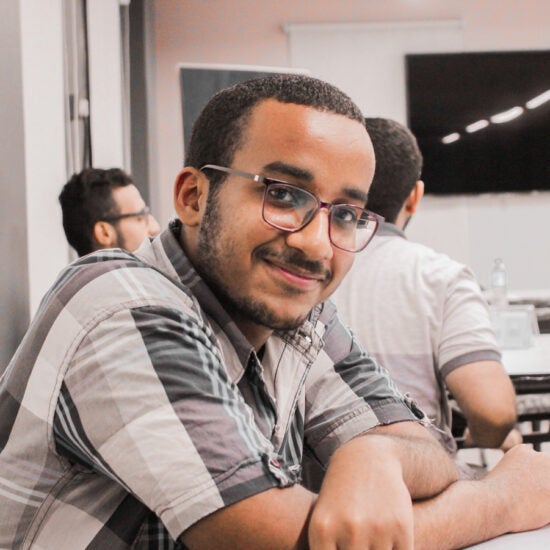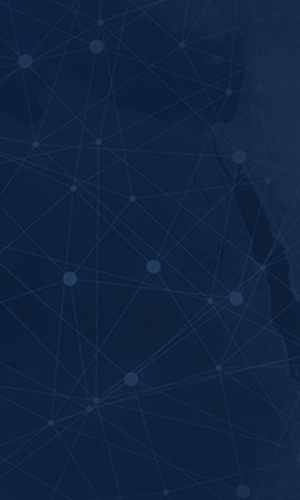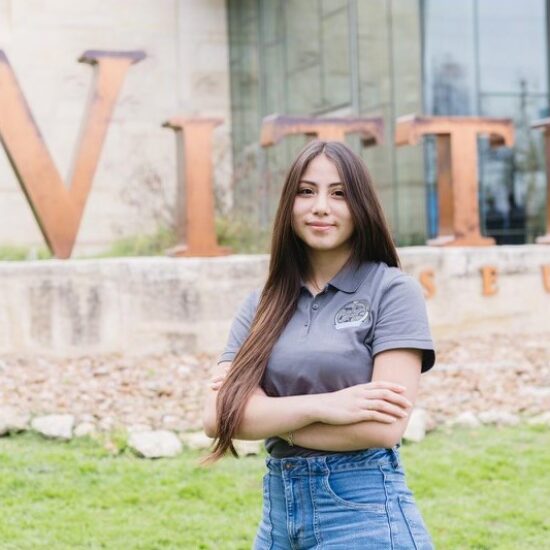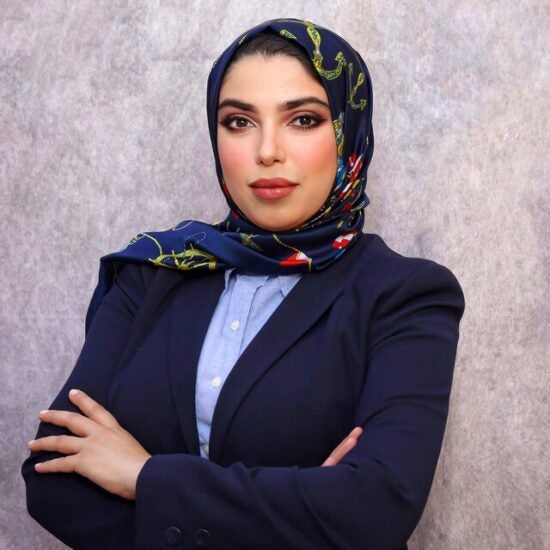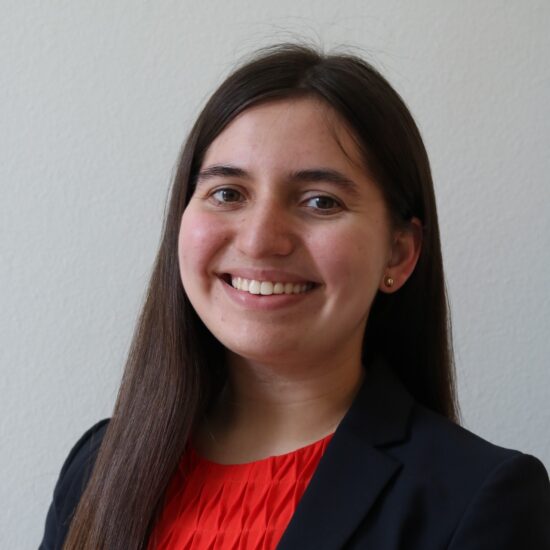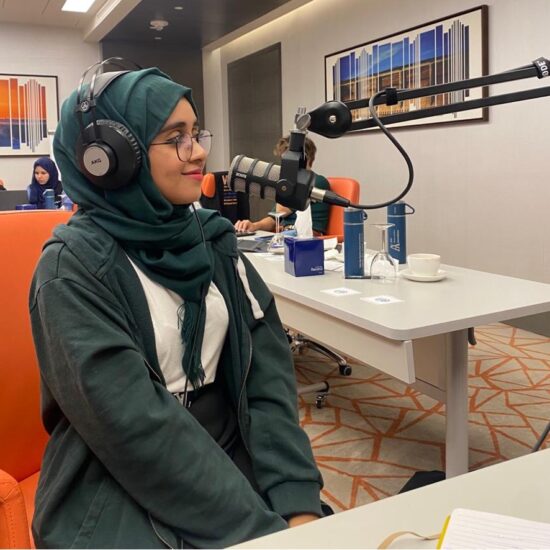“What was an ‘ah ha’ moment for you from this virtual exchange experience?” asked Leen Kawar, IREX Jordan Program Officer to a group of students from Iraq, Jordan, and the United States during the final session of the Global Solutions Conversations program. Enthusiasm was high as virtual emoji hands started popping up on the Zoom thumbnails of students participating in the virtual group dialogue.

“My ‘ah ha’ moment from participating in this virtual exchange was realizing that the whole world is really like a small village!” expressed a student from Iraq. One common theme when students reflected was how much more common than expected it is for cultures to be so interconnected. “I learned the problems we suffer from in Kurdistan do not differ from the problems in the United States, and we can try and help each other and work together to solve these challenges in a more efficient way,” said one student. This was quickly followed by a student from Hostos Community College in the United States who added, “The experience has been so transformative for me. We have become a small family unit over the past five weeks, and I am going to miss everyone dearly. I believe this program effectively helps students to use empathy, teamwork and compassion to solve many problems that the world is facing.”
In April 2021, 228 college students came together from Iraq, Jordan, and the United States in 13 binational groups during the Spring 2021 cohort of the Global Solutions Conversations program. Global Solutions Conversations is a new Stevens Initiative-supported virtual exchange program implemented by IREX that engages higher education students in binational groups from Iraq, Jordan, and the United States in a five-week dialogue where groups brainstorm creative solutions to the UN’s Sustainable Development Goals as they learn about another culture. Students walk through the first three stages of design thinking where they empathize with real needs in their community, define the problem they want to solve and ideate a creative solution to bring increased sustainability. Students from all groups are able to read what others post and learn something new about another culture, further enhancing their binational group dialogues. During the final session, participants share their innovative solutions to real needs in their community and the “ah ha” moments they’ll take with them after the experience. Binational groups shared sustainable solutions to major challenges facing their communities through the UN’s 17 Sustainable Development Goals, including inequality, lack of access to quality education, zero hunger, and poverty.
“If we treat everyone the same way despite their differences, the same way we want to be treated, there are many things that will be changed. When people from diverse cultures interact, it is always an opportunity to learn something new,” said Zakariya S., a student from Erbil Polytechnic University in Iraq. Other participants had similarly important takeaways, with realizations that they have the power to act and influence their communities and the world, and that treating others the way they would want to be treated is key to enacting change.
Emma S. from Tompkins Cortland Community College in the United States learned the power of empathy and the importance of having the opportunity to learn about a culture directly from the source, rather than the media. “I have grown up learning only negative aspects of the Middle East, so it was amazing to gain cultural education straight from my Iraqi partners without bias. I loved how my group discovered similarities, such as hobbies like photography and gaming!” Another student from Iraq chimed in and shared, “It was difficult to think of a mutual problem between Kurdistan/Iraq and the United States because I used to think that America is perfect and they do not have most of the problems that we have here but by participating in this conversation I realized that America is not like what I see in movies and they are facing problems like we are.”
Global Solutions increases access for college students who do not have the time, money, or ability to engage in study abroad programs. It is essential youth are able to interact with people from diverse backgrounds and develop skills for the modern workforce such as global citizenship, empathy, and cross-cultural communication. Live discussions in English also support students in Iraq and Jordan through the opportunity to practice the language with native speakers. Skills developed during the program are not only transferable to the workplace but to all of life. In today’s world where many current events would threaten to create division, there is a need for “global citizens” to connect to the wider world to form strong unity and inspire others to make a positive difference in their communities.
Both students and facilitators built long term connections during the program and are seeking ways to stay connected. “I wish the program wouldn’t end because it was really a great chance to build bridges of trust and acquaintance between diverse cultures,” said Firas M., who facilitated a group from Duhok Polytechnic University. Mickey M., a facilitator form Chandler-Gilbert Community College in the United States summed up the Conversations program well when she said, “As a facilitator, my biggest take-away was the hope I heard in all of the voices of the students. That no matter how many challenges we face today, students show a great desire and sense of hope to take on these challenges as one unified community.”
IREX will be implementing new cohorts for the Conversations program Fall 2021 and Spring 2022. Learn more about how to bring this program to your classroom here.
Global Solutions Conversations is implemented by IREX and is supported by the J. Christopher Stevens Virtual Exchange Initiative (JCSVEI). JCSVEI is a U.S. Department of State’s Bureau of Educational and Cultural Affairs program administered by the Aspen Institute.

